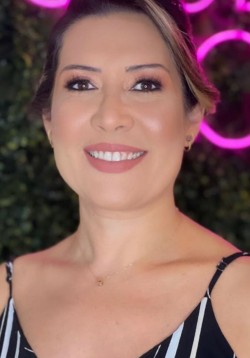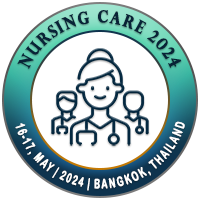
Dr. Ana Cristina Beitia Kraemer Moraes
Universidade Catolica de Pelotas – RS, BrazilTitle: Developing cognitive-behavioral skills in telemedicine by tele simulation
Abstract
Tele simulation allied to educational processes allows the development of cognitive, behavioral, and affective skills from the training of situations that are close to reality and that are developed through remote meetings. The objective of this study is to evaluate the experience of students and teachers who used tele simulation and its resources as a teaching tool for the development of cognitive-behavioral skills in tele-consultation and clinical reasoning. This is a cross- sectional study conducted during the period of the COVID19 pandemic, in the months of August to September 2020 and May to June 2021. The meetings took place online and weekly, lasting 50 to 60 minutes. The simulation of a consultation was conducted via a video tele-call using the Google Meet tool, totaling 16 consultations, with eighteen student volunteers. The meeting time was divided into a case briefing, a simulation, and a debriefing with closure. At the end of the meetings the activity was evaluated by the Scale of Student Satisfaction and Self-Confidence in Learning, using the Likert scale. The students’ performance was evaluated by the researchers through the videos recorded at each session. All signed informed consent forms for the use of information, the study has ethics committee approval. The students agreed that the activity allowed them to orient how much they can enjoy the consultation without being face-to-face and have a favorable clinical reasoning with an adequate management to the patient. We observed that there is a gain in self-confidence and that feelings such as fear, and frustration are softened when the tele simulation reaches a high degree of fidelity. The global evaluation of tele simulation allowed us to identify that the competence to develop a patient-centered medical consultation should be considered in telemedicine care, not restricting the consultation time by not being face-to-face.
Biography
Ana Cristina Moraes is the head of the simulation laboratory of Universidade Católica de Pelotas, and she is getting her PHD from Universidade Federal de Pelotas (Brazil).
Her medical specialization is plastic surgery, and she has been working as a surgeon for 15 years. Additionally, Ana Cristina is a professor at Universidade Católica de Pelotas on the discipline of simulation and surgical technique.

